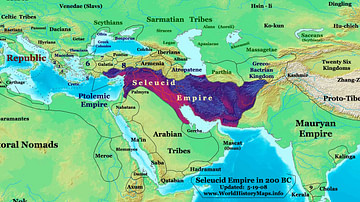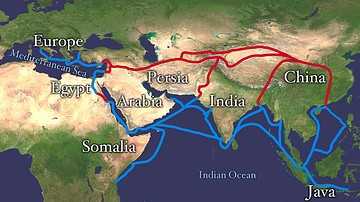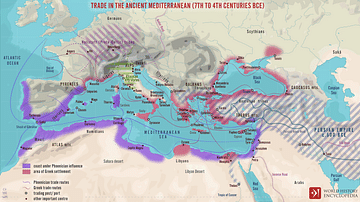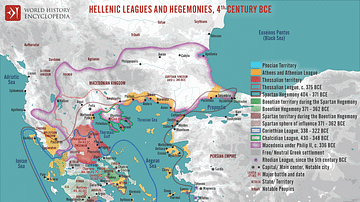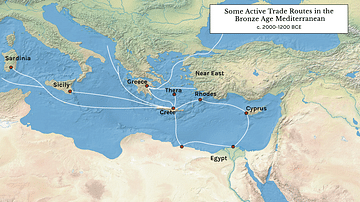Illustration
Alexander the Great died in Babylon on the 13th of June, 323 BCE. His Macedonian-Greek empire broke apart, but Alexander’s heritage was felt throughout the ancient Mediterranean world for centuries. Three Hellenic empires emerged from the wars of succession that followed his death: The Antigonid Empire in Macedonia, the Seleucid Empire in Persia and Mesopotamia, and the Ptolemaic Empire in Egypt. Hellenic culture was kept alive and spread all across the known world: often with the sword, but even more successfully through trade.
The Ptolemaic influence extended from Carthage in the Maghreb via Alexandria in Egypt to Meroë in Nubia. Ptolemaic trade routes extended as far south as Abyssinia and Somaliland in Africa, as well as to India by sea trade. The Seleucid influence extended from Antioch in the West via Seleucia in Babylonia and Persepolis in Persia to Bactra, the gateway to the Asian steppes… and to Xian in China along the Silk Road. By these routes, Greek culture was exported, and exotic goods such as elephants, ivory, pearls, and silk were imported into the Mediterranean.
About the Author
References
- Hermann Kinder, Werner Hilgemann. dtv Atlas der Weltgeschichte. Deutscher Taschenbuch Verlag, 1995
Cite This Work
APA Style
Crabben, J. v. d. (2012, April 26). Hellenistic Trade Routes, 300 BCE. World History Encyclopedia. Retrieved from https://www.worldhistory.org/image/67/hellenistic-trade-routes-300-bce/
Chicago Style
Crabben, Jan van der. "Hellenistic Trade Routes, 300 BCE." World History Encyclopedia. Last modified April 26, 2012. https://www.worldhistory.org/image/67/hellenistic-trade-routes-300-bce/.
MLA Style
Crabben, Jan van der. "Hellenistic Trade Routes, 300 BCE." World History Encyclopedia. World History Encyclopedia, 26 Apr 2012, https://www.worldhistory.org/image/67/hellenistic-trade-routes-300-bce/. Web. 01 Jul 2025.



